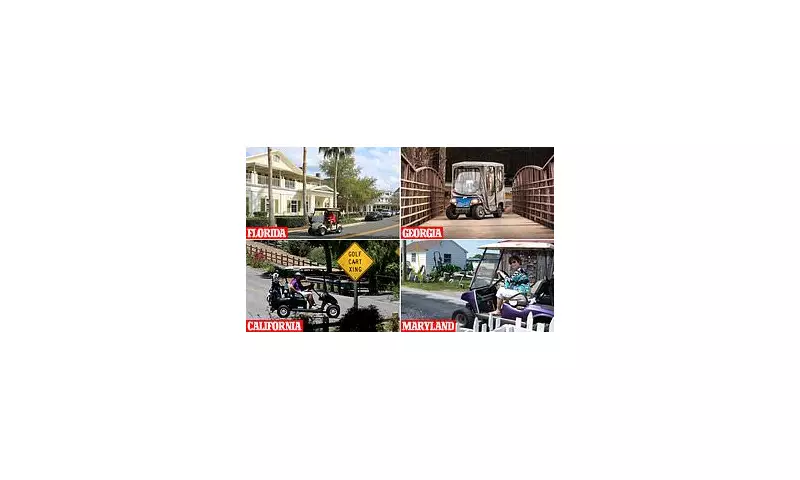
The serene lanes of Britain's affluent suburbs, once the domain of Range Rovers and delivery vans, are facing a new and unexpected invasion: silent, electric golf buggies and micro vehicles. But far from being welcomed as a green alternative, these compact runabouts are igniting a firestorm of resident fury, pitting neighbour against neighbour in a modern-day culture war.
The 'Pavement Pirates' Spark Outrage
At the heart of the conflict is a fundamental clash over the rules of the road. These diminutive vehicles, which often blur the line between car and mobility scooter, are increasingly being parked on pavements, charged from domestic plug sockets via cables strewn across footpaths, and driven at low speeds on roads they were never designed for.
Residents' groups and local councils are being inundated with complaints. The core grievances are a potent mix of safety fears and aesthetic disdain:
- Trip Hazard Terrors: Cables snaking across pavements to charge vehicles pose a serious risk, especially to the elderly, visually impaired, and young children.
- Pavement Blockades: Parking these vehicles on footpaths forces pedestrians, including parents with prams and wheelchair users, to step into the road to get around them.
- Safety & Security Concerns: Many models lack standard safety features like indicators, licence plates, or required insurance, creating a legal grey area on public highways.
- 'Noddy Car' Nuisance: A vocal contingent of critics simply derides them as eyesores, an undignified addition to the streetscape that undermines the character of their neighbourhoods.
A Nationwide Nettle for Councils
The issue is proving a regulatory nightmare for local authorities. Existing traffic laws struggle to categorise these new modes of transport, leaving police and traffic wardens often powerless to act. The Department for Transport finds itself pressed to clarify the legal status of these vehicles and provide updated guidance to prevent the disputes from escalating further.
This isn't just a problem for the super-wealthy in gated communities. From the home counties to commuter towns, the trend is spreading, fuelled by online sales and a desire for cheap, convenient local transport. For every defender who champions their eco-friendly credentials and utility for short trips to the high street, there is a detractor who sees them as a symbol of lazy and antisocial behaviour.
The great British golf cart revolt is more than a simple neighbourly spat; it's a fascinating preview of the social challenges that will emerge as urban transport evolves. It forces a difficult question: how do we integrate the future of mobility without tearing apart the fabric of our communities?





